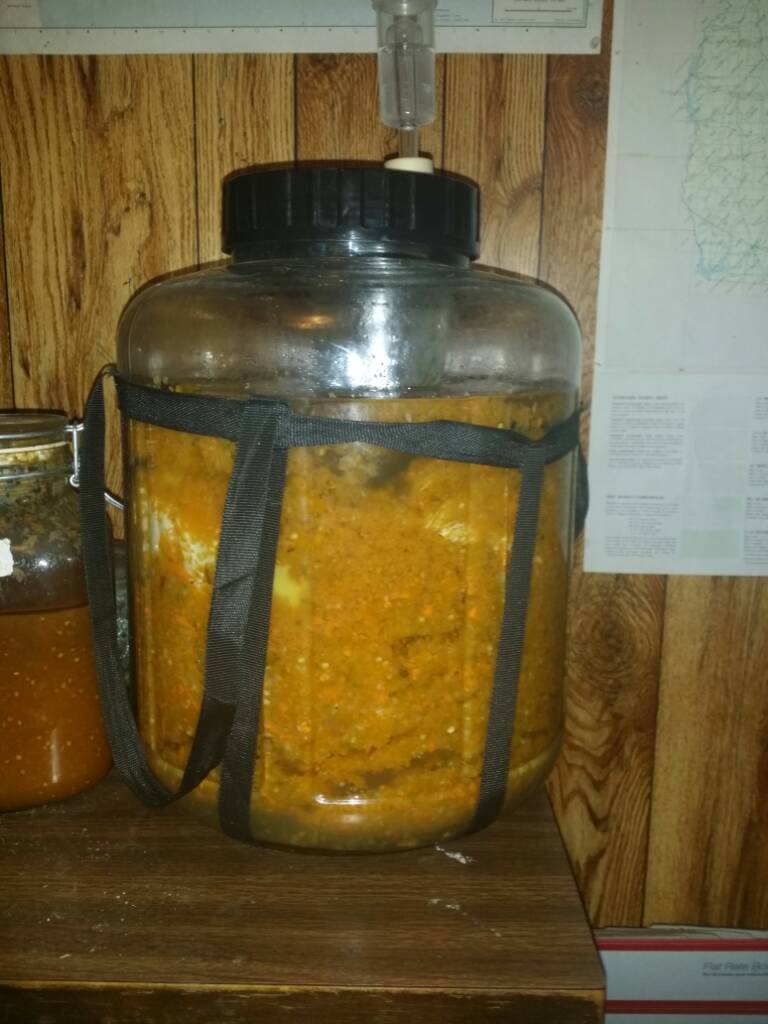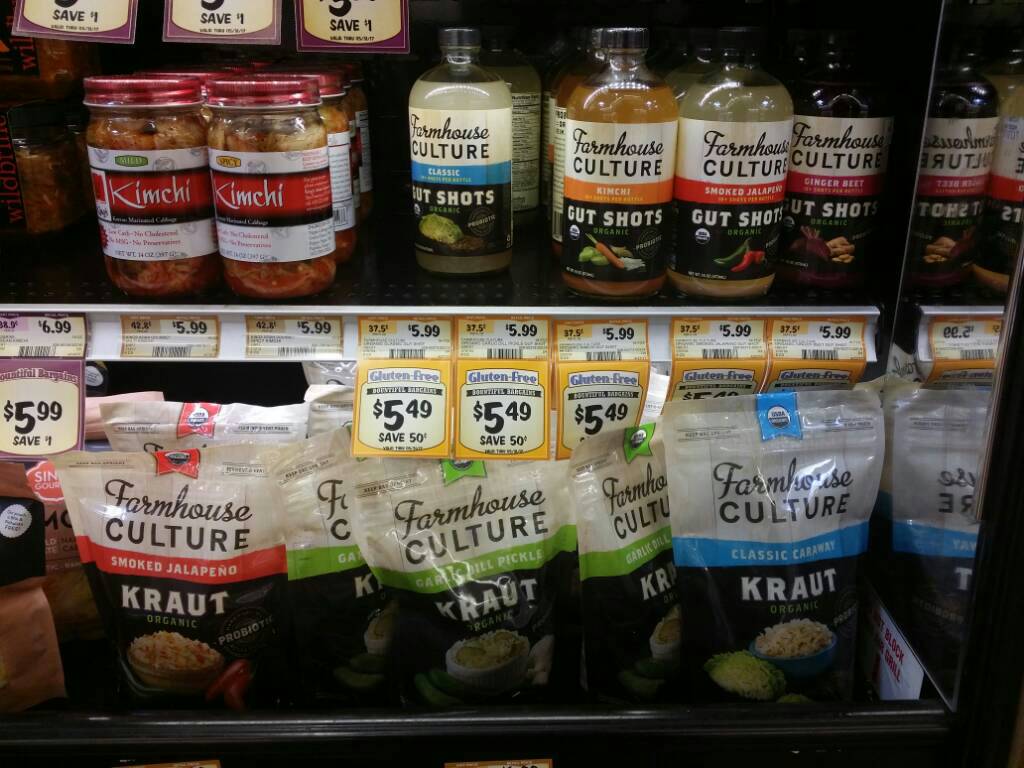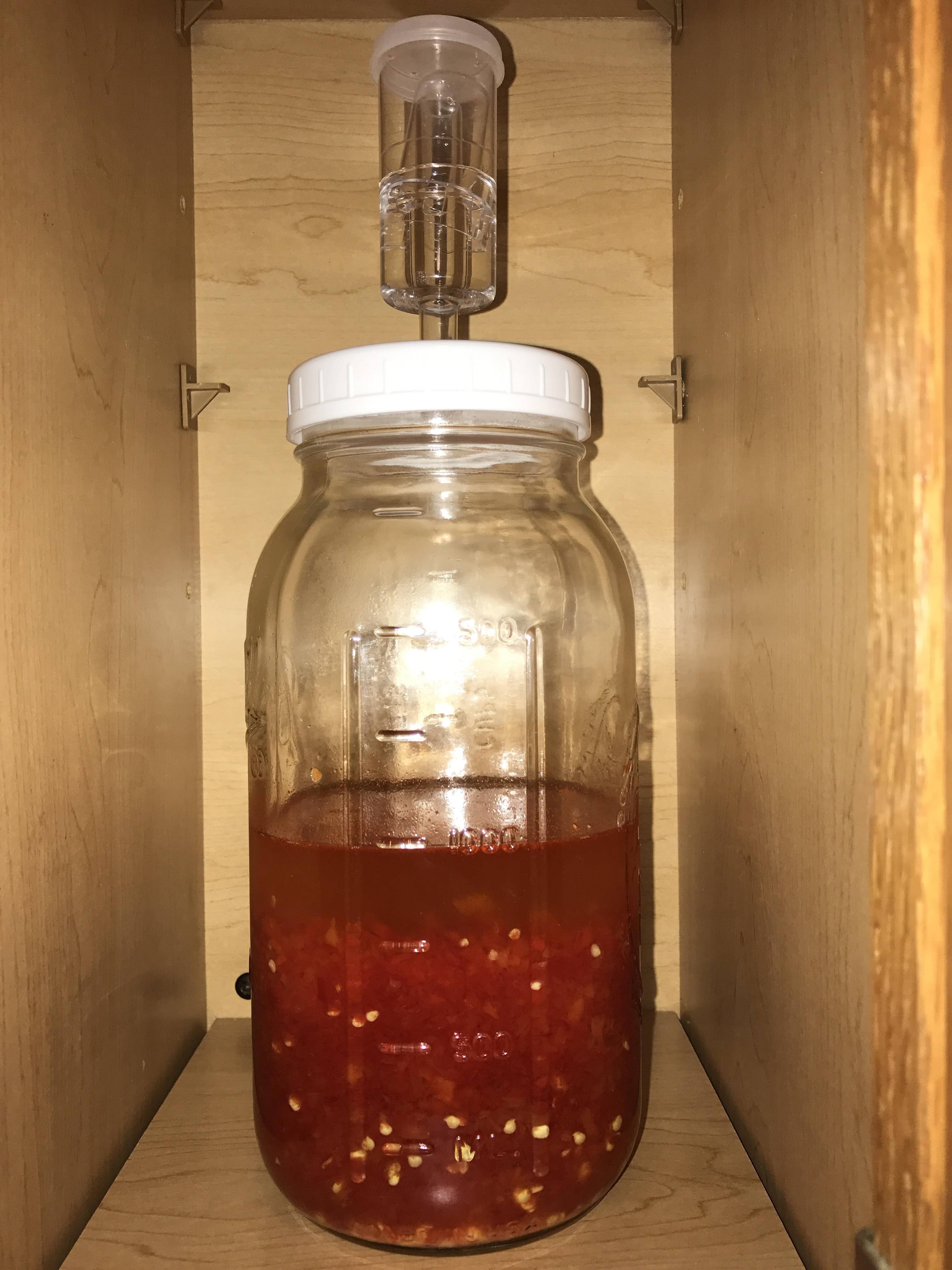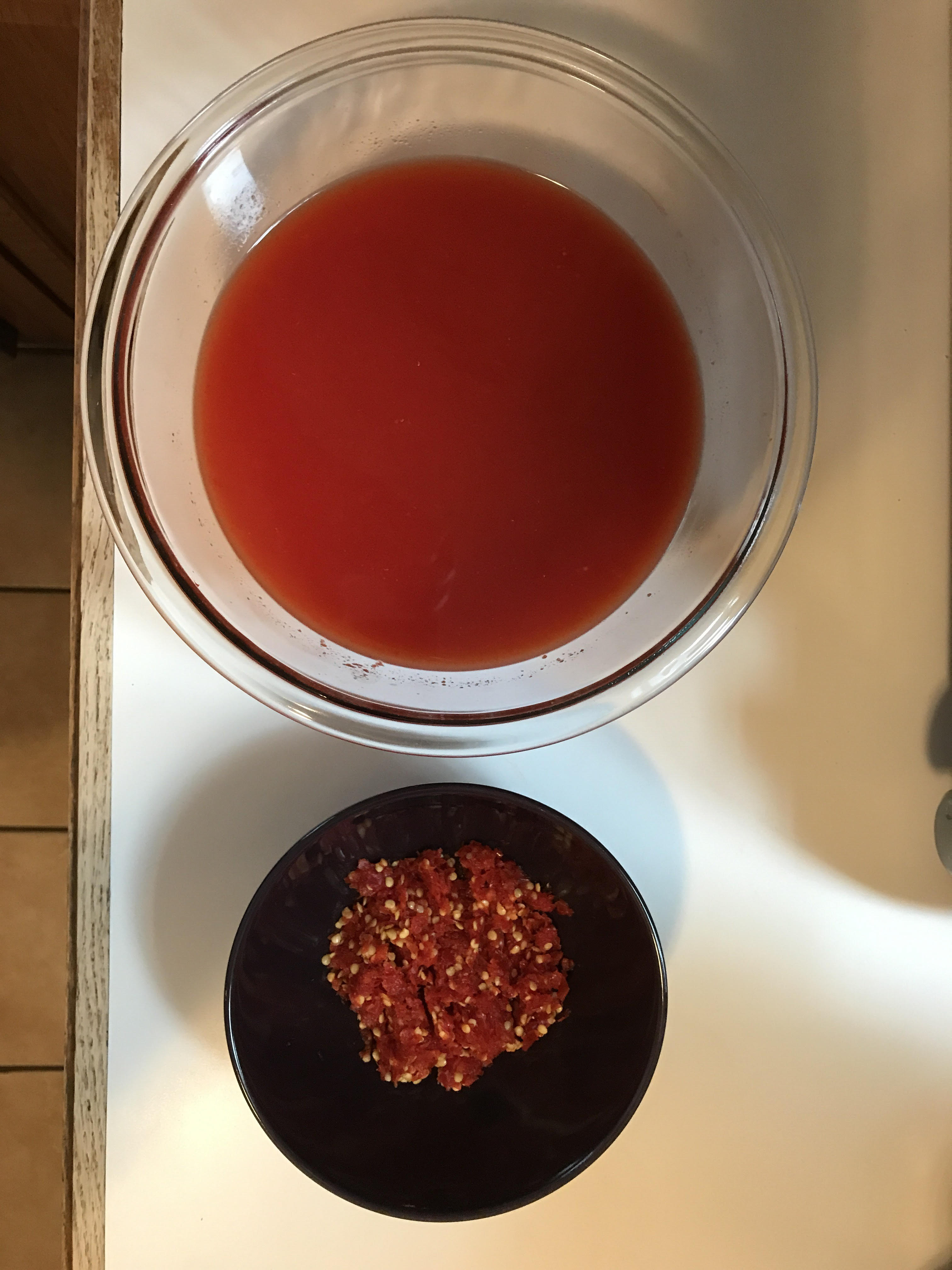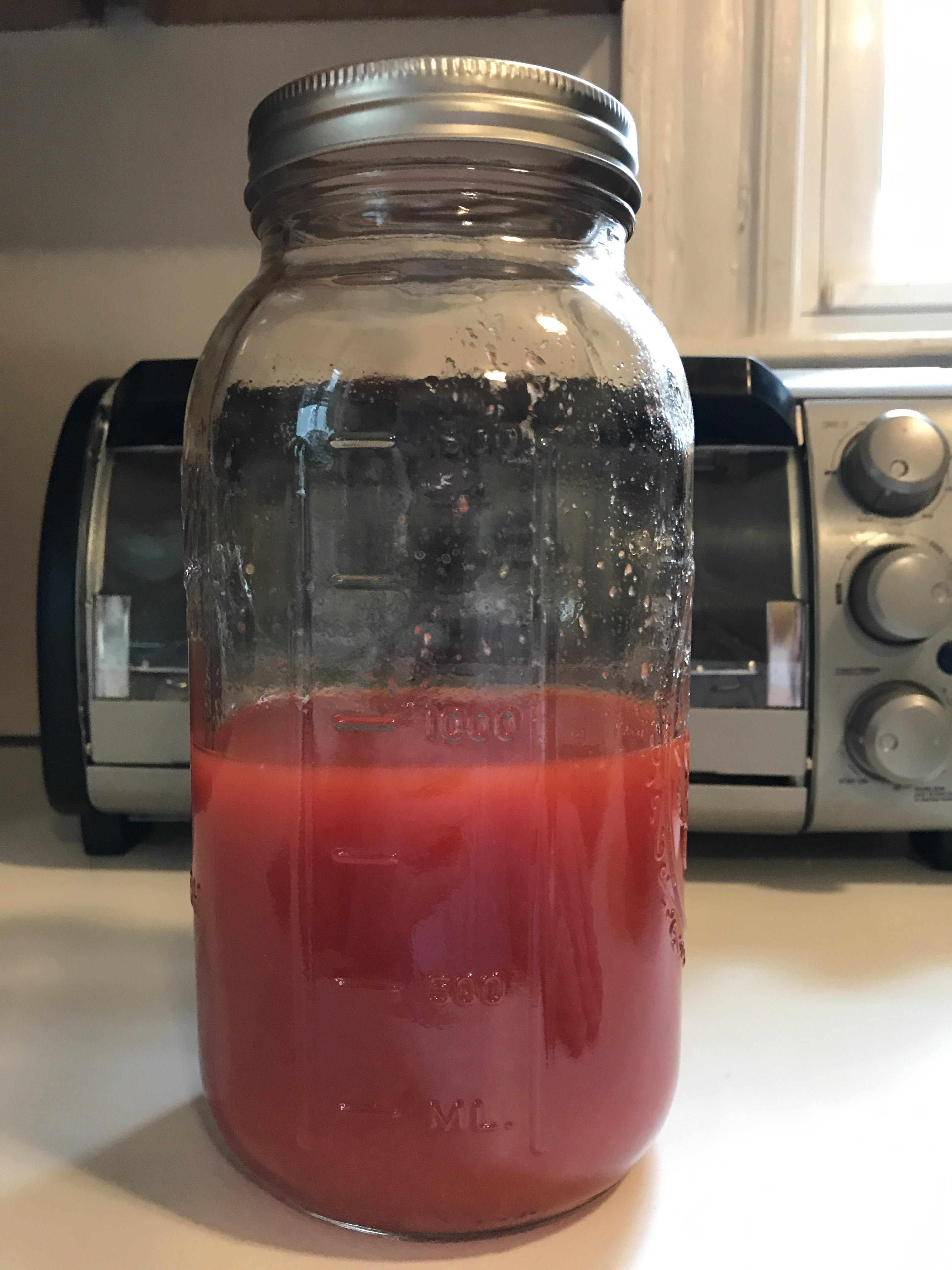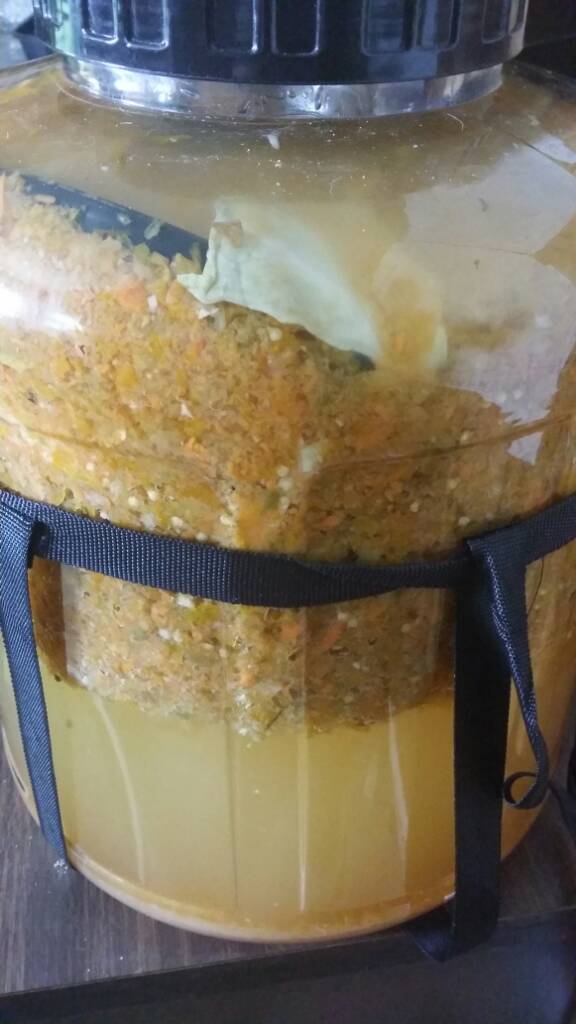So I decided to process this sauce today after 28 days of fermentation, mainly because I wanted to see how it tastes (first time ever making a hot sauce, let alone fermenting anything) but also because I'm eager to try a second sauce with a few more ingredients and potentially a longer fermentation time and gauge the difference those tweaks make.
Thank you to everyone who has been posting on this site for the last few years! I just discovered this corner of the web recently, but have been slowly reading my way backwards through every thread related to fermenting hot sauce (currently back to early 2015 now) and the trials, the errors, the successes, the recipes, the science...it all has been fantastic!
For my first fermented hot sauce attempt, I went with:
Orange habaneros - 109g
Red bell - 395.8g
Red fresno - 176.2g
Sea salt - 13.6g
A small splash of distilled water
I finely chopped the habaneros, bells and fresnos in a food processor to create a mash then put the mash in a large bowl. I added the sea salt and stirred to incorporate. Then I moved the mash to a mason jar, placed towel over it and loosely tightened the ring to secure it and put it into a cupboard.
For two days, I opened and stirred it once a day to inhibit any mold/yeast growth. On the third day, fermentation had begun (bubbles, separation of the mash), so I replaced the cloth and ring with a plastic lid with an airlock. I never saw any yeast or mold. despite not weighing down the mash.
After fermenting for 28 days, I removed the airlock and opened the lid. I strained the sauce through a fine handheld strainer and used a rubber spatula to separate the pulp from the skins/seeds, scraping the pulp from underneath the strainer into the sauce. After processing the sauce, I re-strained/spatula'd the processed mash just to get any remaining pulp into the sauce.
It tastes pretty darn good, and I think I understand the general flavor of a fermented sauce a little better now. I'm not immune to capsaicin as some folks here are (yet!), so to me, it's pretty spicy. Not the type of thing I would drown a dish in, but not so hot that it sets my tongue on fire. There's a nice tang to it as well. I was prepared to potentially add more salt, honey or vinegar, but I think it might be fine as-is. I'm going to leave it in the fridge for a few days and then retaste.
Lessons learned/stuff for next time:
- Ambient temperature matters. It really seems to slow down fermentation when the temperature dips below 70 degrees.
- Don't open the jar until you're ready to process the sauce. I did this once due to an issue I was having with the airlock where it was pulling air (and then some distilled water from the airlock) in. Thankfully, there didn't seem to be any adverse consequences, but I won't be doing that again.
- Use a smaller jar or make more mash. My jar was only about half full (and even less than that when i started). A fuller jar would create an anaerobic environment quicker and maybe help with my reverse airlock issue (depending on the actual cause). This may not have caused any problems this time, but it's something I'll avoid in the future.
- Get a food mill. The strainer/spatula method seemed to work, but I bet I could have gotten even more pulp into the sauce with a mill, and with less effort.
- Get a ph meter. I have no idea what the ph is, so this sauce is staying in the fridge, but for safety/shelf stability/general curiosity, I'm investing in a ph meter for next time.
- Let the ferment go for even longer. Now that I have a sense of how the flavor develops, I'm interested to push that further. 3 months, 6 months or more.
Here are some pictures!
Last picture I took of the ferment still in the jar (this was at 21 days):
The sauce after being processed, and the leftover mash (going to dry and make pepper flakes/powder):
The sauce, back in the jar (going to put in a more appropriate bottle after tasting in a couple days):
Thank you all for this great resource!

